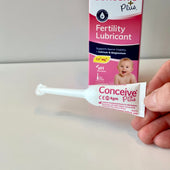What to Eat When Trying to Conceive

If you’re trying to conceive, you’ve probably read a lot about what you can and can’t eat once you’re pregnant. But what about before you’re pregnant? Eating the right foods (and avoiding the wrong ones) can help to boost your fertility and keep your body healthy so that it’s ready for a baby.
General Guidelines
The first guideline is to work on your general health. Being extremely overweight or underweight can make your periods irregular and therefore make it harder to conceive. If you struggle with your weight, it’s a good idea to talk with your doctor about a diet and exercise plan to reach and maintain a healthy weight. Other good pre-conception foods are the foods that are healthy for everyone. As much as possible, cut out junk food and processed foods such as candy, chips, and fast food. Instead, focus on lots of fruits and veggies, complex carbohydrates, and lean proteins. These will not only make sure your body has all the nutrients it needs; they prevent excess insulin from disrupting your body’s hormone balance, which is essential for reproduction. You should also make sure you’re getting all the vitamins you need, which is usually easy to do by taking a prenatal vitamin.
Calcium
Calcium is an essential nutrient for keeping your reproductive system healthy and for strengthening both your bones and the bones of your baby when you do conceive. You should aim to eat about two servings of dairy, such as milk, cheese, and yoghurt, a day. When you need a treat, reach for an ice cream cone! These should be whole milk, rather than skim or 2%, products. Full fat milk can help to protect you from ovulatory infertility, while skim milk may actually hinder ovulation. If you’re lactose intolerant or vegan, you can find calcium in many soy and tofu products.
Iron
Iron is very important to a regular menstrual cycle, which will help you to conceive. You can get enough iron by eating beef and other red meats, oatmeal, and leafy greens such as spinach, kale, and collard greens. Leafy greens will also provide you with folic acid, which is essential for preventing birth defects.
Protein
Protein is important for a healthy body (and therefore a baby-friendly body!), but not all proteins are created equal. Some studies have found that plant-based proteins are better for fertility than animal proteins. So load up on the beans, lentils, and quinoa. When you do opt for meat, choose lean options such as chicken, eggs, and lean cuts of beef and pork.
And what about fish? Oily fish such as salmon and tuna provide powerful omega-3 fatty acids, which are great for a soon-to-be mom and growing baby. They also facilitate the flow of blood to the uterus. Just make sure that you avoid high-mercury fish such as swordfish, mackerel, and shark. Mercury can remain in your body for over a year, so it’s important to reduce your exposure to it as soon as you’re trying to conceive. If you’re not a fish fan, you can always opt for a fish oil supplement instead.
Check out Conceive Plus!
Since 2005, our mission to provide products that truly benefit the lives of consumers has remained solid. Conceive Plus® products are available in pharmacies, drug stores, fertility clinics and even supermarkets in over 70 countries around the world helping millions of couples to get pregnant.











